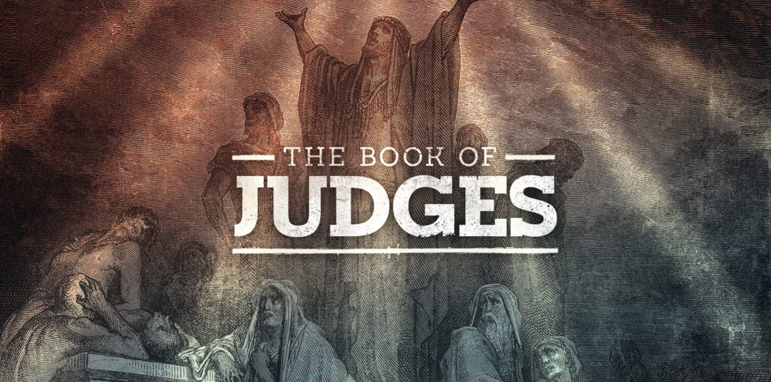The Rest of the Judges
The most recent episodes of “In the Fire” brought us through a mini-series on the Book of Judges. In those four episodes (Episodes 110-113), we covered the most well-known judges: Deborah, Gideon, and Samson. If you haven’t listened (or if you want to listen again), these were some great episodes that went in-depth on these three strong yet complicated figures in Biblical history. You can listen to each of them here:
Episode 110: The First Big Judge
Because those episodes only cover three of the twelve judges accounted for in the Book of Judges, this blog post gives some information on the others, as well as some basic information on the book as a whole!
The Book of Judges: An Overview
Historically, the Book of Judges comes at a time after Israel moved into its “Promised Land” but before Israel’s peak as a nation. That is, the Book of Judges precedes the time of Samuel, David, and Solomon. Before Israel demanded a king, God provided for His people in many ways. One of these ways was through the judges, individuals that God called and sent to deliver His people from oppression and from the threats that surrounded their land. The judges are largely a mixed bag, as you will find out by listening to our episodes on the topic (especially the episodes on Gideon and Samson). On one hand, the judges deliver Israel in profound and miraculous, and often violent ways. Thus, they carry out God’s will and protect Israel. On the other hand, these judges far too often fall into the trap of personal vengeance, impropriety, temptation, and impulsivity (much like any of us). In that way, the judges encapsulate humanity and its relationship with God. And in the end, the book leaves us wanting the peace, protection, and fulfillment that only Christ provides. You can learn more about all of this by listening to our episodes on the judges!
The Rest of the Judges
The twelve judges are divided into major and minor judges. The distinction is essentially based on how much information we have on each of them; that is, how much writing is devoted to the history of the specific judge. Below is a brief description of each judge (other than Deborah, Gideon, and Samson), drawn from what the Bible tells us about them.
Othniel: Othniel was the first judge, and was called by God to deliver Israel from the oppression of Cushan-Rishathaim, king of Aram Naharaim, who oppressed the Israelites for eight years following Joshua’s death. Othniel led God’s people in war, overpowering Israel’s oppressors.
Ehud: After Othniel’s time, Israel again did evil in the sight of the Lord and was oppressed by the nation of Moab for 18 years. God sent Ehud after Israel cried out for help, and Ehud went alone to the king of Moab and killed him on his throne. Then, Ehud led an assault on the people of Moab and reclaimed the lands that Moab had taken from Israel.
Shamgar: After eighty years of peace, Shamgar was called to help God’s people from the threat of the Philistines. Shamgar killed six hundred Philistines (and that is all we know).
Tola: Tola judged Israel for 23 years following Gideon’s time.
Jair: Jair led Israel 22 years following Tola’s time.
Jephthah: Besides Deborah, Gideon, and Samson, Jephthah is the judge that we have the most information about. The Israelites continued to do evil in God’s eyes. Because of their evil, God “sold them into the hands of the Philistines,” who “shattered and crushed” the Israelites for 18 years. Other nations also threatened and oppressed the Israelites in this time. God’s people repented and called for help, and Jephthah, a mighty warrior, rose to the occasion. Jephthah was the son of a prostitute and was driven away from his tribe because of that fact. Nonetheless, Jephthah’s people turned back to him in their time of need, and Jephthah strategically and boldy opposed Israel’s oppressors. Jephthah acted boldly in his faith, and soon enough the Spirit of God came upon him and Jephthah devastated his enemies. Jephthah made a promise to the Lord to sacrifice “whatever came out of the door of his house” upon returning home after defeating his enemies. This backfired, as Jephthah’s daughter emerged from his house upon Jephthah’s return. Jephthah, however, let his daughter roam away for two months before following through with his vow (at his daughter’s request). This story adds to the ambiguity we see from other judges (largely Gideon and Samson), where their actions are loyal to God in part but also morally cloudy. These stories leave us wanting more, and wondering about righteousness in all of this.
Jephthah’s story goes on to discuss conflict among the tribes of Israel, leading to more ambiguity and uneasiness as tribes fight against each other and kill each other, all over the pronunciation of the word “shibboleth.” But this is a blog post for another time…
Ibzan, Elon, and Abdon: These were three more judges following Jephthah and preceding Samson, and not much detail is given.
